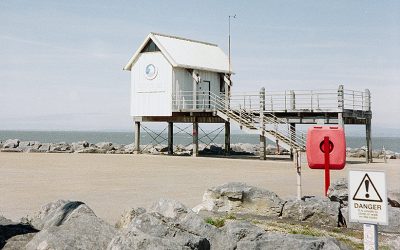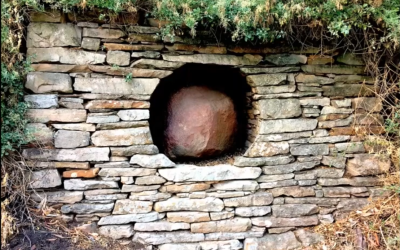By Visting Scholar, Rodanthi Tzanelli
Recently, while I was reading Perdita Phillips’ (2015) musings over the unresolved relationship between sustainability and eco-aesthetics, I began to consider the implications of the UK’s exclusion from the European Capital of Culture – a competition that bears for the victorious bidder the promise of economic development, cultural prestige and global networking. European cultural bids have increasingly been connected to notions of urban resilience, ecological responsibility and cultural sustainability, so her work is not to be dismissed by interdisciplinary researchers. Phillips’ (2015: 55-56) starting point is not different from that of most scholars exploring the vocabulary of sustainability: the term’s three pillars of economic, social and environmental well-being can be represented unequally in policy-making decisions. This is so, because actions that are named ‘sustainable’ are not scrutinised for their efficacy in terms of degree or quality. Finally, despite the promise to distribute benefits across different spheres (natural and/or cultural), economics provides the master narrative of development shadowing them.
Phillips is, of course, specifically interested in the development of sustainable artistic practice, which would comprise a small part of the European Capital of Culture venture. However, her work provides valuable insight into the aesthetic basis of any such venture as a more-than-economic or anthropocentric system of growth, which has to constantly adapt to the flows of life. Vitalism as the philosophy of connectivity between humans and non-humans runs through her thesis – a point worth bearing in mind, regardless of my focus on human action in this reflective piece. Our perspective in everyday life, Phillips suggests, has to be adaptive, fluid and flexible according to appropriate spatiotemporal scale. This means that the (our) development of resilience in crises of any kind invites experimenting, embracing interrelatedness and making connections, hence treating dark presents and futures as challenges to supersede, not attraction points to reproduce or ends in themselves. She terms the latter a particular form of ‘zombie environmentalism’ revelling in the apocalyptic without future, an attitude that decouples us from ethical action and endorses discourses of post-sustainability. If these observations invite connections to contemporary politics in the ‘developed world’, it is because the connections are already there and active.
Phillips’ reflections render themselves immediately applicable to an urban eco-aesthetics in the UK in the context of a yet-to-be-completed Brexit deal. By ‘aesthetics’ I do not refer to fixed notions of beauty and justice (the ancient Greek or Kantian aesthetics), but an interaction through which one gives oneself up as a viewer so that the interlocutor may live. The prefix ‘eco’ suggests that the aesthetics of communication with others, in which beauty comes to life, has to be placed within an ecological framework, a symbolic space in which we feel ‘at home’ (eco from oikos or house/home) and we can also be hospitable to others. Simply put, an urban eco-aesthetics opens up the space of interaction to those who would not normally be involved in the production of the city as a living space. This does not merely involve its disenfranchised residents, but also those living in other urban enclaves and cities, as well as the cities’ material properties, which the neoliberal logic of competition cast as ‘enemies’. In this new logic of generosity, human beings, material structures and inanimate things have rights to an active urban space (see also Fraser et.al. 2005). Unfortunately, it is precisely this conceptualisation of ‘the right to the city’ that comes under threat by contemporary political re-alignments, which were wrought upon us by irresponsible actions and a xenophobic turn inwards and away from others. Simply put again, Brexit chauvinism and the project of neoliberal urban development (part and parcel of the European Capital of Culture ‘contract’, no doubt) mirror each other, when it comes to the practice (the ‘how’) of (dis)connecting with others.
Think of the EU as a complex system comprising bureaucratic, economic and cultural components, and then view the UK as one of its twenty-odd sub-systemic strands en route to haphazard autonomy: what the latter strives to achieve is a sustainable re-arrangement of itself, while also adjusting its European and global liaisons. Think of UK cities as even smaller subs-systems within the UK, striving to adapt their relationships with other cities within and without the UK. So far, most economic and cultural prognostications suggest that UK cities will be hit rather hard by the country’s secession from the European Union. The European Commission’s confirmation that a British city cannot hold the lucrative title of European Cultural Capital post-Brexit offers a glimpse into these dark prospects. Taking the city in which I live as an example, I can see the applicability of this pessimism: its exclusion from the title in 2023 sparked anger amongst local politicians and residents, who suspected that cities like Leeds are being used as a “Brexit bargaining chip” in a wider political game. The assumption is far from irrational, given the arrogant announcement of the referendum’s result in media circuits and the present UK government’s erratic bargaining over a soft Brexit. However, my focus is on the development of a new urban eco-aesthetics of connectivity, rather than the hard politics of British ‘Euro-secessionism’.
Such an eco-aesthetics has to attack the root of the problem, which is to be found in the neoliberal style of networking that all cities have to follow, if they are to be successful on the global urban hierarchy of power. Consider Evans and Sewell’s (2014: 37-38) analysis of the ‘neoliberal imaginary’s’ proclivity to ‘extol entrepreneurship, self-reliance, and sturdy individualism; equate untrammelled pursuit of self-interest and consumer satisfaction with human freedom; glorify personal wealth…and associate government programs with inefficiency, corruption and incompetence’ as a behavioural business template for urban policy at large. Now that European connectivities are under threat, this imaginary of growth fosters more isolationism within the country, leaving each of the aspiring UK 2023 bidders, as well as the rest, more exposed to austerity crises. So, perhaps a new urban eco-aesthetics is not to ‘press ahead’ with the scheduled festivities, as groups of artists and policy-makers have suggested in Leeds, but to ‘give up’ the city’s perspective of individualist self-growth in favour of trans-urban connectivity within the UK. This logic of generosity, which is based both on reason (solidarity nurtures social, cultural and economic well-being) and emotion (an anti-regionalist attitude rejecting Brexit jingoism and European spite towards Britain at the same time) seems to be a more sustainable way ahead. A trans-urban fusion of horizons in the UK, with pragmatic connections in local events across cities in the arts and culture, promises both individual urban growth and collective lifting out of the traps of isolation.
REFERENCES
Evans, P.B. and Sewell, W.H. Jr. (2014). The neoliberal era: ideology, policy and social effects. In P. Hall and M. Lamont (Eds.), Social Resilience in the Neoliberal Era (pp. 35-68). Cambridge: Cambridge University Press.
Fraser, M., Kember, S. and Lury, C. (2005). Inventive life: Approaches to the new vitalism. Theory, Culture & Society, 22(1), 1-14.
Phillips, P. (2015). Artistic practices and ecoaesthetics in post-sustainable worlds. In C. Crouch, N. Kaye and J. Crouch (Eds.), An Introduction to Sustainability and Aesthetics: The Arts and Design for the Environment (pp. 55-68). Florida: Brown Walker Press.



